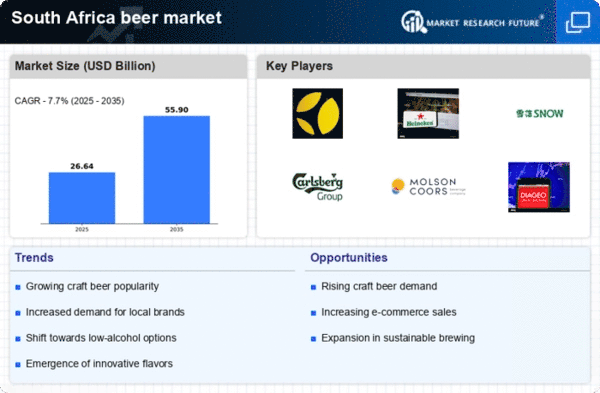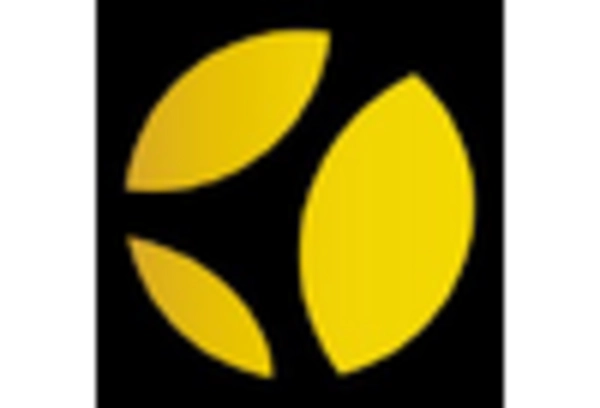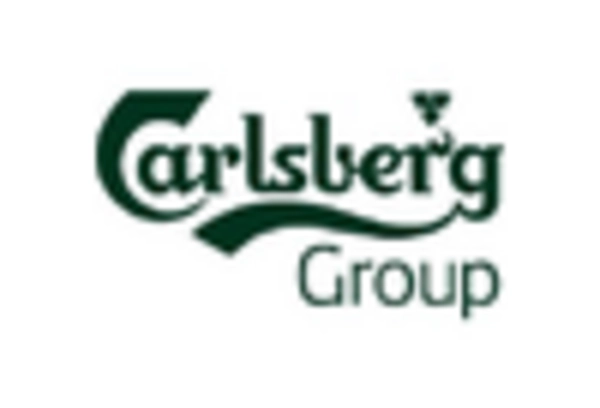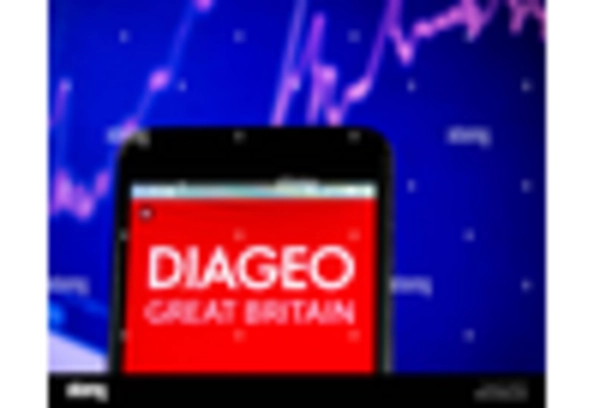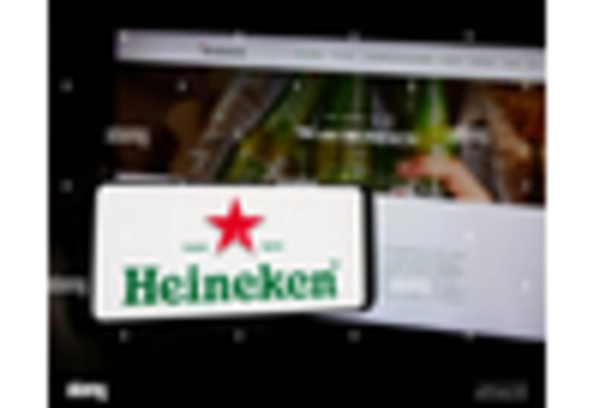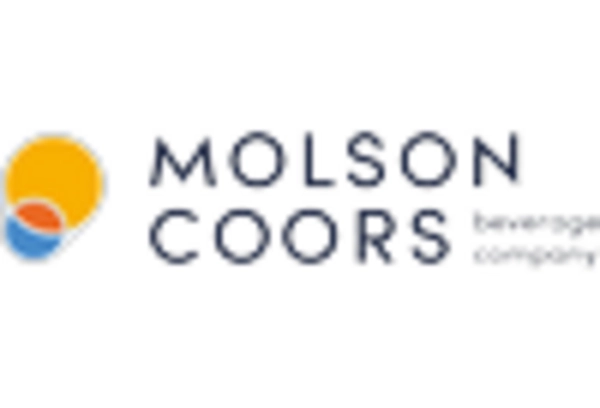Health Consciousness
In recent years, there has been a notable rise in health consciousness among South African consumers, which is impacting the beer market. Many individuals are increasingly aware of the health implications associated with alcohol consumption, leading to a demand for low-calorie and low-alcohol options. This trend is particularly evident among millennials and Gen Z consumers, who are more inclined to choose beverages that align with their health and wellness goals. As a result, breweries are innovating by introducing lighter beers and alcohol-free alternatives, which are gaining traction in the market. Data suggests that the segment of low-alcohol beers has grown by around 15% in the last year, indicating a significant shift in consumer behavior within the beer market.
Regulatory Environment
The regulatory environment surrounding the beer market in South Africa is complex and continually evolving. Recent changes in legislation regarding alcohol advertising and distribution have significant implications for breweries and distributors. Stricter regulations may limit marketing strategies and require companies to adapt their approaches to comply with new laws. Additionally, the government has been focusing on responsible drinking initiatives, which could influence consumer behavior and perceptions of alcohol consumption. As breweries navigate these regulatory challenges, they must remain agile and responsive to ensure compliance while still effectively reaching their target audiences. This dynamic regulatory landscape is likely to shape the future of the beer market in South Africa.
Evolving Consumer Preferences
The beer market in South Africa is currently experiencing a shift in consumer preferences, with a growing inclination towards premium and craft beers. This trend appears to be driven by a younger demographic that values unique flavors and artisanal production methods. As consumers become more discerning, they are willing to pay a premium for quality, which has led to an increase in the market share of craft breweries. Recent data indicates that craft beer sales have surged by approximately 20% in the past year, reflecting a broader trend towards personalized and high-quality beverage options. This evolving consumer landscape is likely to continue influencing the beer market, as brands adapt their offerings to meet these changing tastes.
Emerging Distribution Channels
The emergence of new distribution channels is transforming the beer market in South Africa. Traditional retail outlets are increasingly complemented by online platforms and direct-to-consumer sales models. The rise of e-commerce has enabled breweries to reach a broader audience, particularly among younger consumers who prefer the convenience of online shopping. Additionally, partnerships with local restaurants and bars for exclusive offerings are becoming more common, allowing breweries to enhance their visibility and brand presence. This diversification of distribution channels is expected to drive growth in the beer market, as companies adapt to changing consumer shopping habits and preferences.
Technological Advancements in Brewing
Technological advancements are playing a crucial role in shaping the beer market in South Africa. Innovations in brewing technology, such as automation and improved fermentation processes, are enhancing production efficiency and product quality. These advancements allow breweries to scale operations while maintaining consistency in flavor and quality. Furthermore, the integration of data analytics in brewing processes enables producers to better understand consumer preferences and optimize their offerings accordingly. As a result, breweries that leverage these technologies are likely to gain a competitive edge in the market. The ongoing investment in technology is expected to drive growth in the beer market, as companies seek to meet the evolving demands of consumers.


